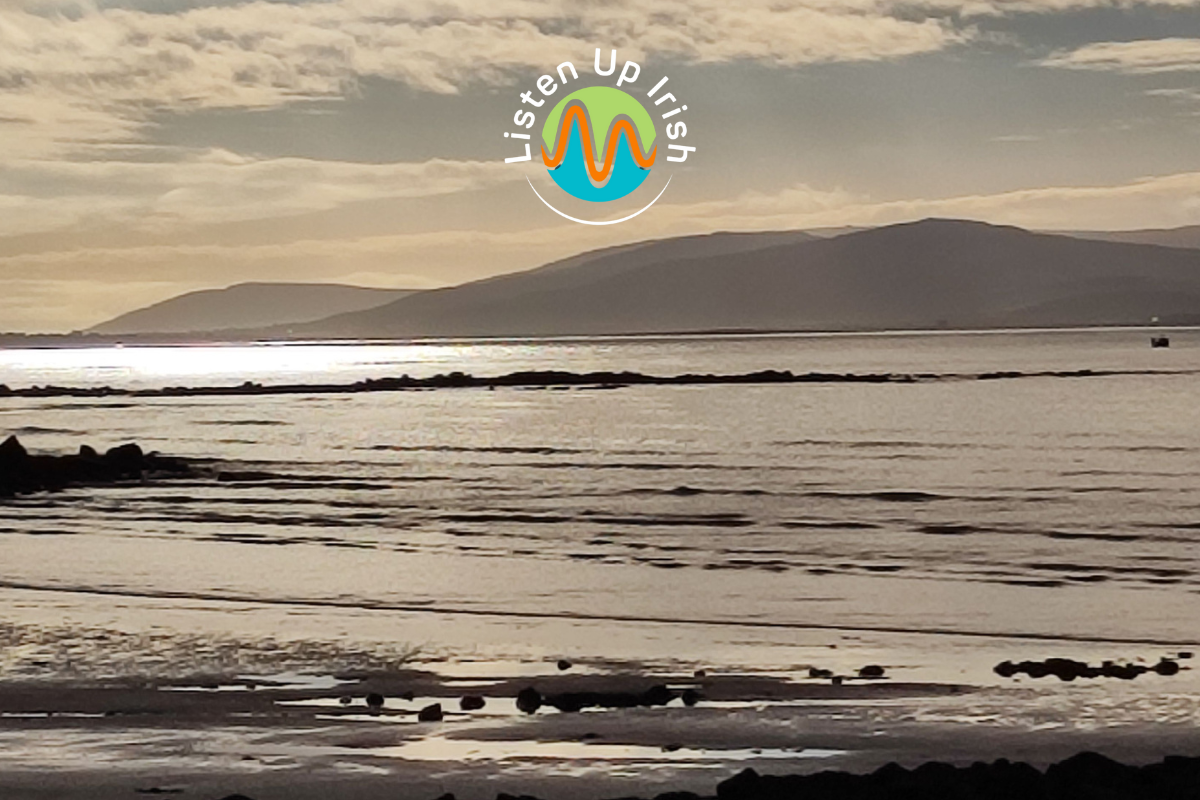How to say 'I'm grand' in Irish
When someone asks 'how are you?' in Irish it's good to be able to give something a little more interesting than 'tá mé go maith' (I'm good), or 'níl mé ródhona' (I'm not too bad) in reply. Here are a few great expressions to use the next time someone asks 'cén chaoi a bhfuil tú? (how are you?)
Tá mé ag treabhadh liom
This is a great expression, and comes from 'ag treabhadh' (ploughing). It means that you're plodding along, getting on with things - neither too good nor too bad. You can change the meaning of this expression to mean that you're getting on very well by adding 'chun cinn':
Tá mé ag treabhadh chun cinn
I'm getting on great / forging ahead (lit. I'm ploughing ahead)
Read my earlier blog post for lots more useful examples of this expression:
Tá mé togha
Another great expression!
The word 'togha' means the best of something, the cream of the crop. It's often used with the word 'rogha' (choice).
Bhí togha agus rogha na gceolteoirí ag seinm aréir
The best of the best of musicians were playing last night
'Togha' is also used to mean 'fine' (or 'grand' as used in Ireland) however; and usually that's the meaning when said in reply to 'cén chaoi a bhfuil tú?'; 'conas atá tú?'; 'cad é mar atá tú?' (how are you?)
Tá tinneas cinn orm ach beidh mé togha
I've a headache, but I'll be fine
Tá mé togha, níl rud ar bith ag cur isteach orm
I'm fine, nothing at all is bothering me
Use the word 'togha' (pron. 't-ow (as in 'ow', I hurt myself!) for a little code-breaking: 'ogh' is often pronounced similar to 'ow' in English).
Note that the 'a' at the end of the word is barely heard: t-ow
(Similarly: r-ogh-a (pron. r-ow-a); use teanglann.ie to check pronunciation in each of the three main dialects)
Cén mhaith a bheith ag casaoid?
This is the one to use when you're just hanging in there: what use is there in complaining?!
This literally means 'what good to be complaining?'
Bíonn sé i gcónaí ag casaoid faoi rud éigin
He's always complaining about something
Ná bí ag casaoid!
Stop complaining! (lit. don't be complaining)
Ní fiú a bheith ag casaoid
There's no point complaining (ní fiú: it's worthless/pointless)
Ní fiú a bheith ag casaoid mura bhfuil tú chomh líofa sa nGaeilge agus gur mhaith leat a bheith. There's no point complaining if you're not as fluent in Irish as you would like to be. Is fiú, áfach, cúrsa le All About Irish a dhéanamh! It is worth, however, doing a course with All About Irish.
Cúrsaí Gaeilge / Irish courses
All About Irish offers online Irish language courses to adults in Ireland and all over the world. Courses offered include Beginner Irish; Intermediate Irish (Beyond Beginner) and Learn Irish Through Literature and Learn Irish Through Poetry courses. If you'd like to take a state certified exam in Irish then check out the TEG A2 course. This course covers absolutely everything needed to succeed in the Teastas Eorpach na Gaeilge A2 exam. If you're not sure which is the right course for you just contact me using this form. All About Irish courses use a special method ('structured Irish') to ensure that you learn as much Irish in as little time as possible! Structured Irish focuses on teaching a rock solid understanding of the structure of the language so that the learner understands the structure of the language, rather than just learning words and phrases off by heart. Courses also focus on correct pronunciation and vocabulary building.




